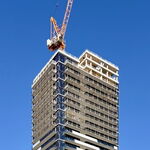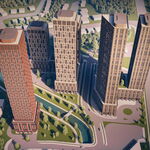js97
Senior Member
The elephant in the room is low borrowing costs. That is pretty well the major driving force.
Psychologically, I think there are some really interesting thinks at play. New buyers don't have any experience with real estate downturns and old buyers have been climbing the property ladder for so many years now they conveniently discount their own experience. With cheap credit available for so long I think a lot of people are living and have expectations of living beyond their means. They also seem to impose constraints on their decision-making as though they wield financial clout beyond their means.
Here is the story of a typical profile of a buyer bidding on a house in the old city of Toronto, fiction but amalgamation of real people:
A couple in their early thirties who spent their 20's in urban settings. All their friends are buying real estate and talking about their renovations. They are thinking about starting a family some time and are being pressured to buy because it is "the smart thing to do" by their boomer parents. They have virtually no savings, they can't save much because their lifestyle eats up almost all their disposable income and they often have to carry credit card balances. Their parents etc. are willing to pony up much of their down payment, a fact they would never admit to their peers. They think 20 percent is an onerously high and safe downpayment amount. They put down less than 20 percent on the home with a mortgage that has a greater than 25 year ammorization period. They buy in a marginal area they believe to be up-and-coming or cool. It's a fixer upper. The have barely ever touched a hammer but watch lots of HDTV. They won a bidding war after raising their "maximum" price they could afford by $100,000 (15-25% of the entire price of the property) but they had to buy now because prices are only going higher and higher. Also, they gave themselves 2 months to find the house because x starts teaching again in the fall and house hunting would be too distracting. Besides, they already had to sacrifice their vacation to y to look for the house. They caved on price because they were so disgruntled at loosing bidding wars and the pressure to buy now was too intense. They basically followed around the same dozens of people just like themselves bidding on the same houses in the same neighbourhood weekend after weekend. But that's just how things are these days, besides they are happy now that they bought something.
I unfortunately believe people like this will find the next decade of their life financial difficult. The story of real estate is not going to be one of collapse and drama, it is going to be about lowered expectations and monotony and struggle.
Coudln't have said it better myself. Talk about hitting the nail on the head!!!
475k for a 1,200 sq ft detached in that area seems reasonable. That's a relatively big house! I can't imagine paint colour, and age of the applicances has much to do with house price. I'm surprised it would have been listed for 419k ... must have been an attempt to get a bidders war. What was the 2008 assessment value?
reasonable? that area is the armpit of Toronto?! Not sure about the assessment, but 3 years ago, that house was probably wortth 299- 330k tops//
1200 is is also a generous measure, looking back now, it's probably is closer to 1000 sq ft. .




